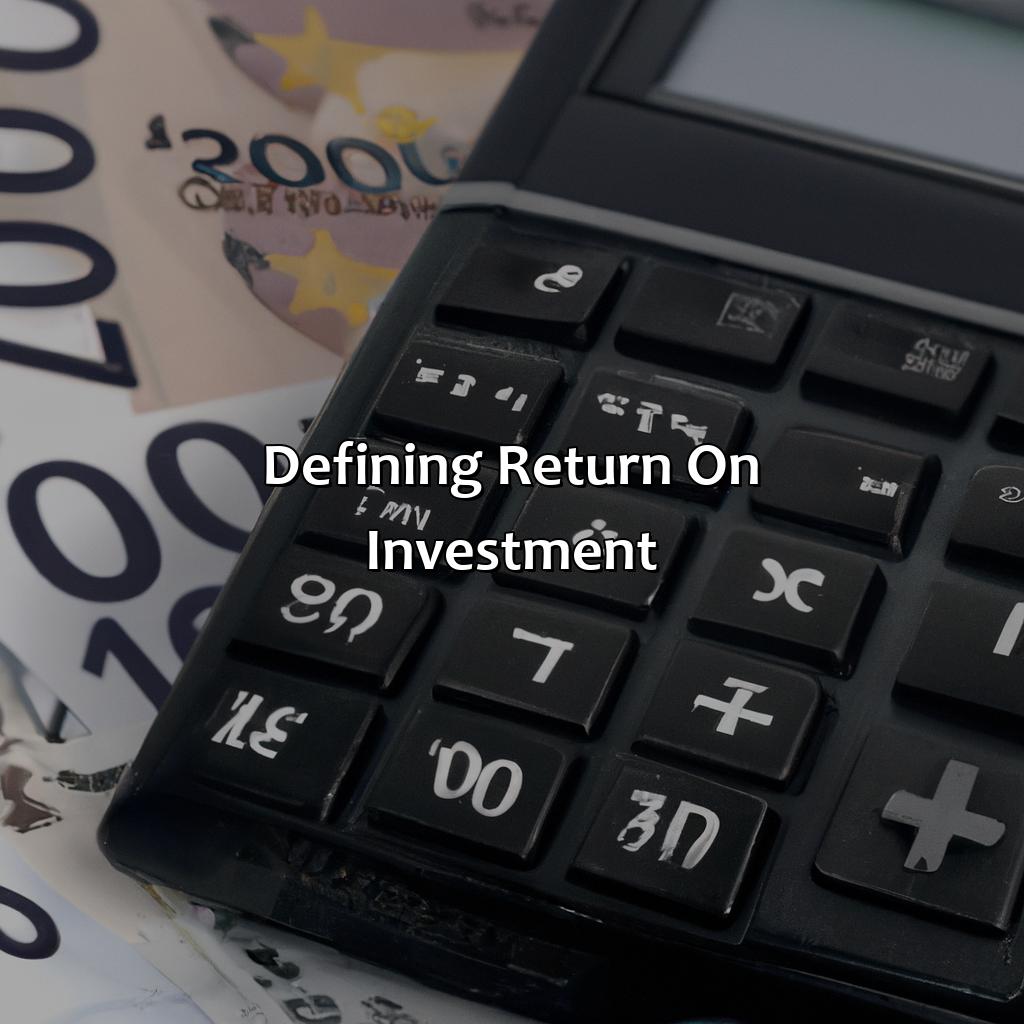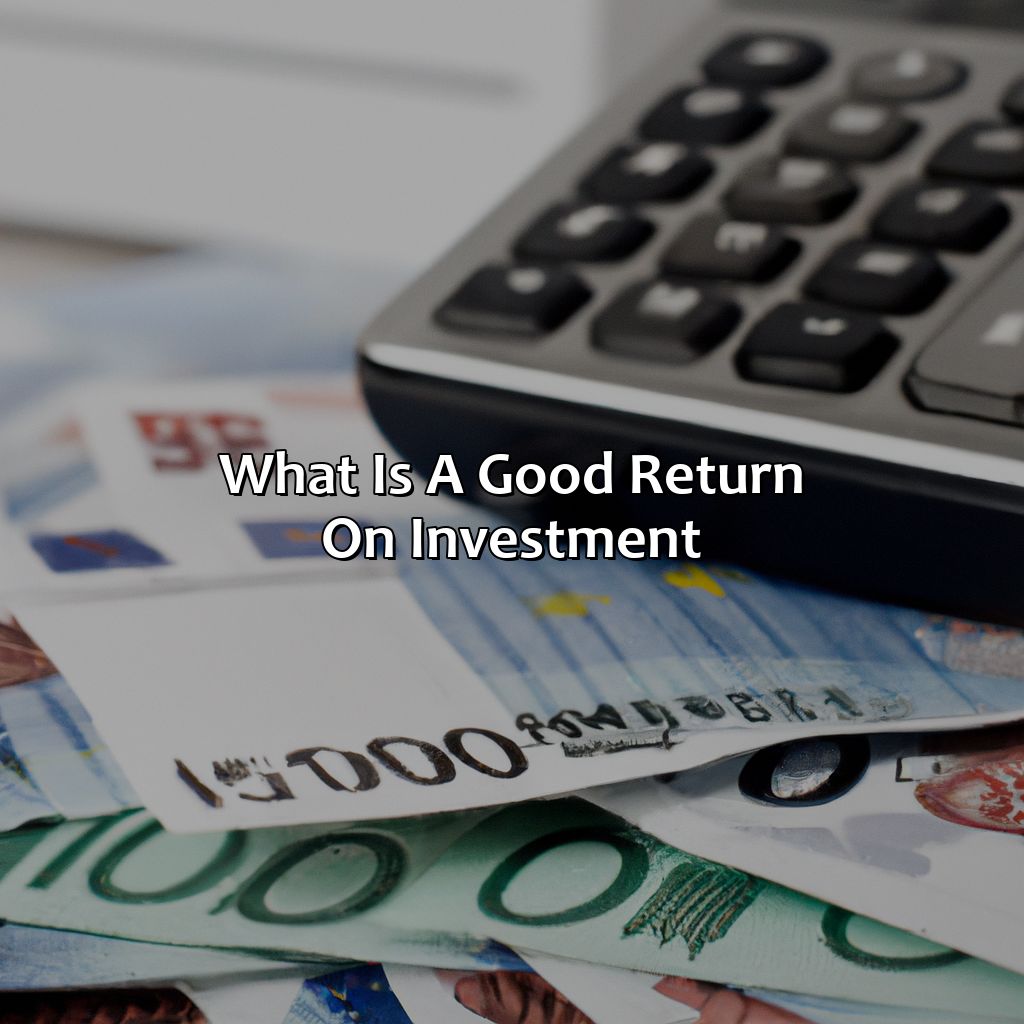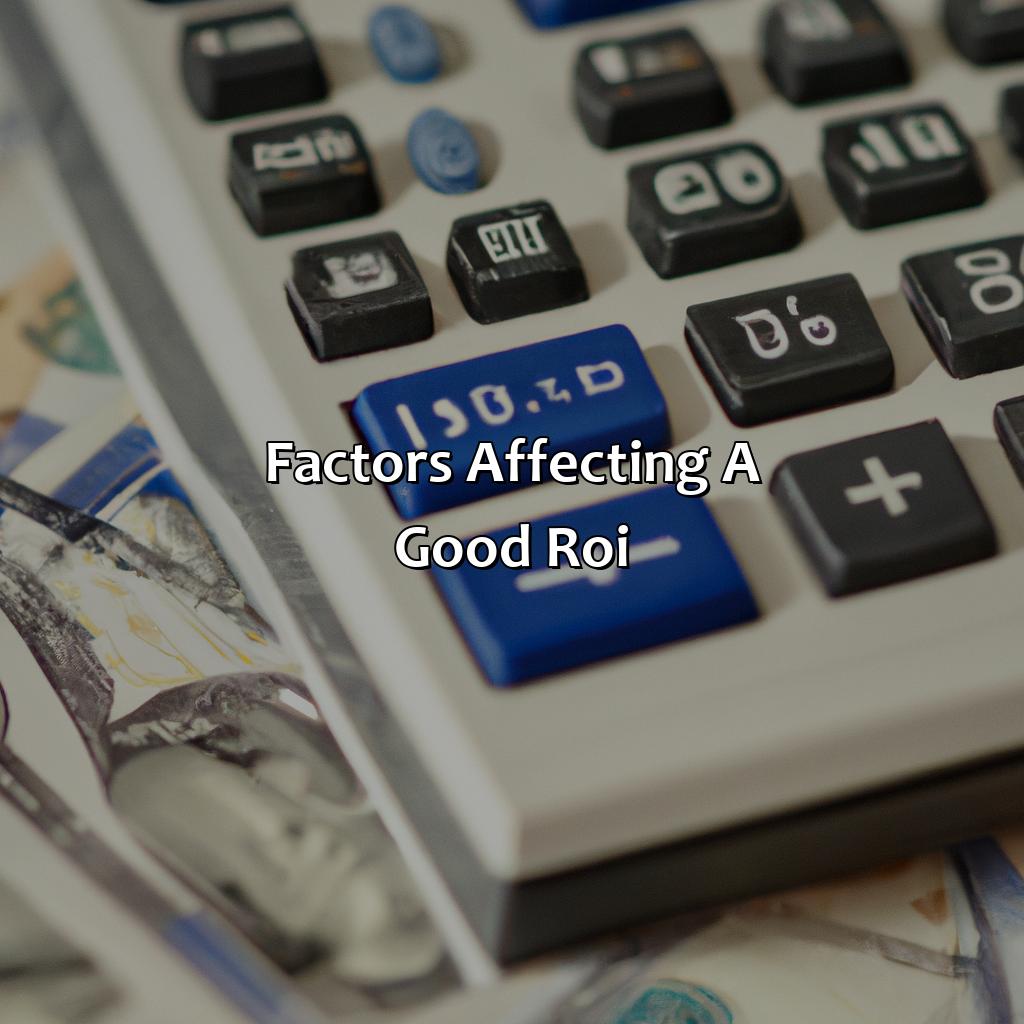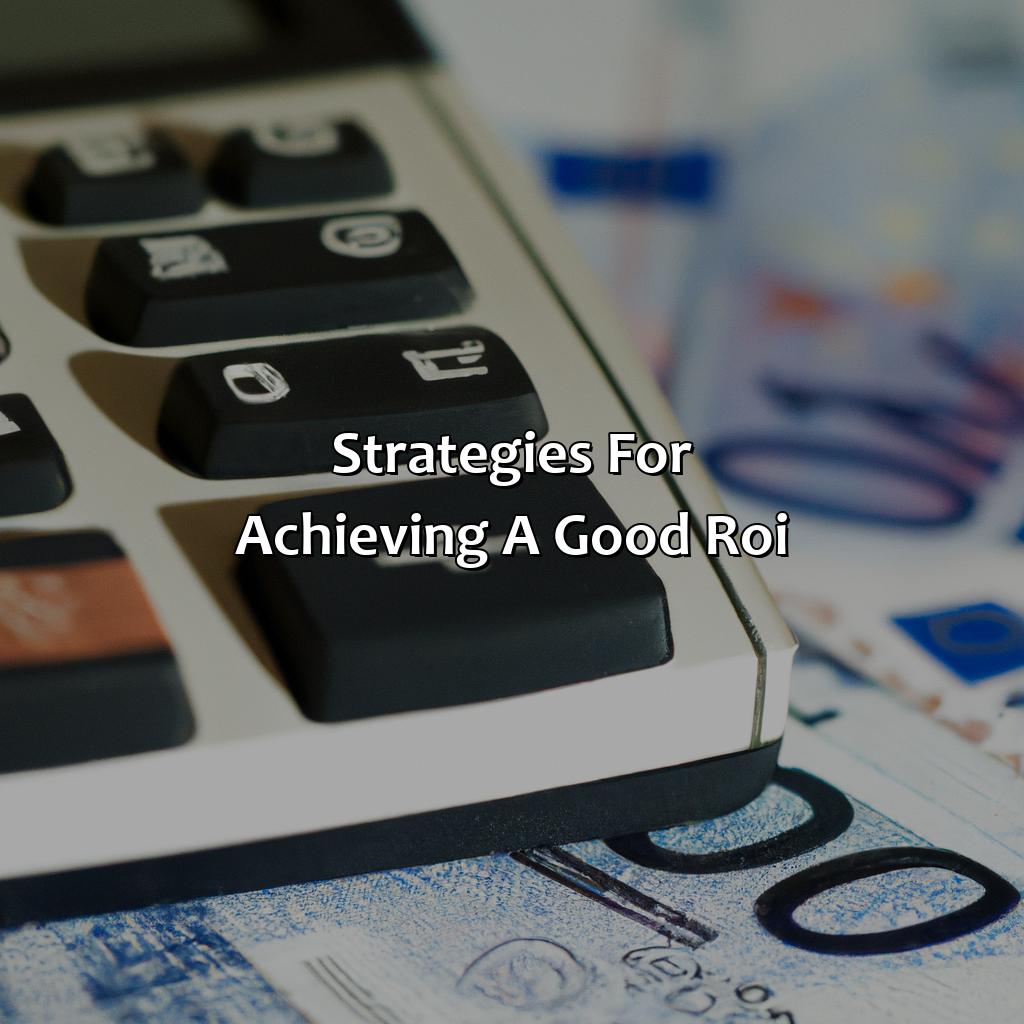What Is A Good Return On Investment?
Key Takeaway:
- Defining ROI: Return on Investment is a financial metric used to measure the profitability of an investment, comparing the net return to the cost of the investment.
- What constitutes a Good ROI? There are different factors to consider when defining what a good ROI is, such as setting benchmarks based on ROI percentages, comparing with industry standards, or evaluating the risk vs return balance.
- Factors affecting ROI: The market conditions, investment type, and investment duration are all factors that can affect the ROI of an investment, and should be taken into account when evaluating the potential profitability of an investment.
Struggling to make the best financial decisions? You’re not alone. Discover how to identify a good return on investment and make smart money choices. Get ready to take control of your finances!
Defining Return on Investment
Return on Investment, or ROI, is a measure of the profit or loss generated by an investment in relation to its cost. It is expressed as a percentage and is used to evaluate the efficiency or effectiveness of an investment in generating returns. ROI is a critical metric that provides investors with important insights into the performance of their investments. By knowing the ROI, investors can make informed decisions about allocating their resources and selecting investments that offer good returns.
Investors typically calculate ROI by dividing the gains from an investment by its cost. ROI can be further broken down into different types, such as simple ROI, which factors in only the gains and cost of an investment, and Return on Equity, which considers an investor’s equity stake in the investment. Regardless of the type, a good ROI is one that exceeds the investor’s minimum required rate of return.
It is important to note that ROI is not the only factor an investor should consider when making investment decisions. Other factors such as market trends, risk, liquidity, and diversification should also be taken into account. To maximize ROI, investors could choose to invest in assets with higher returns, consider diversifying their portfolio, or look for opportunities in emerging markets. Each approach has its own advantages and disadvantages and must be evaluated carefully before making any investment decisions.

Image credits: retiregenz.com by Adam Arnold
What is a Good Return on Investment?
Investors often wonder what constitutes a satisfactory Return on Investment (ROI). A good return depends on various factors, including the type of investment, its risk level, and market conditions. An ROI higher than the cost of capital is desirable, but it is also essential to consider the investment’s duration and associated risks. Moreover, investors must consider their investment goals, such as wealth preservation, income, or capital appreciation.
When determining what is a good Return on Investment, investors must understand the investment context and risks involved. The best way to assess an ROI’s adequacy is by comparing it to the investment’s benchmark or comparable alternatives’ returns. Investors must also remember that past performance does not guarantee future returns. Therefore, they need to evaluate each investment’s potential and risks based on their unique investment strategy and goals.
Pro Tip: Investors must consider their investment goals, risk appetite, and duration before choosing an investment option with an expected Return on Investment. Additionally, diversification and asset allocation help mitigate investment risks and enhance returns.

Image credits: retiregenz.com by Adam Arnold
Factors Affecting a Good ROI
Investment Returns: Elements that influence a high-performing ROI
A good ROI is imperative to the success of any investment. Expensive investment mistakes can be avoided by understanding the key factors that influence ROI.
The first element that affects ROI is the length of the investment term. Long-term investments tend to produce higher ROI than short-term investments due to the power of compound interest.
Another crucial element is the level of risk involved. Low-risk investments may produce lower returns, but they offer a safer investment environment, while high-risk investments provide an opportunity for higher returns but carry a greater risk of substantial losses.
The quality of the investment is also an essential element, as investments in well-managed, successful companies or projects offer a higher probability of profitable returns.
It is essential to dig deeper to find the most beneficial elements that can contribute to ROI. Consider whether the investment is aligned with the overall strategy and purpose of the portfolio, as well as the economy, industry trends, and the investment’s tax implications.
An example of these elements in action is evident in the success story of Amazon. Amazon invested in itself, expanding its operations and cultivating a reputation for reliable delivery and excellent customer service. As a result, Amazon built a strong foundation and emerged as a dominant force in eCommerce. Today, the return on investment for Amazon is remarkably high, primarily due to its continued successful expansion and customer satisfaction.

Image credits: retiregenz.com by Harry Woodhock
Strategies for Achieving a Good ROI
In order to achieve a satisfactory return on investment, it is important to have effective investment strategies in place. One such strategy is to diversify your portfolio by investing in a variety of assets, enabling you to spread your risk and increase your chances of success. Another effective strategy is to conduct thorough research before investing, taking into account factors such as industry trends, company performance, and potential risks. By doing so, you can make informed decisions that will help you achieve your desired return on investment.
It is also important to keep track of your investments and adjust your strategy as needed. Regularly monitoring your portfolio and making changes based on market fluctuations and new information can help ensure your investments remain profitable over time.
A crucial aspect in achieving success with your investments is to stay disciplined and avoid making hasty decisions based on emotions. This means having a clear investment plan in place and sticking to it, even during times of market volatility or uncertainty.
According to a recent study by Morningstar, diversification and diligence in investment research have contributed to the success of many top-performing investment funds.

Image credits: retiregenz.com by James Duncun
Some Facts About What Is a Good Return on Investment:
A good return on investment varies depending on the investment type and market conditions, but a general benchmark is a return of 10% or more annually. (Source: The Balance)
A good return on investment is based on the risk and reward of an investment, with higher risk investments generally offering higher potential returns. (Source: Investopedia)
A good return on investment is also influenced by factors such as inflation, taxes, and fees. (Source: Forbes)
Good investment returns can be achieved through a diversified portfolio of stocks, bonds, and other assets. (Source: U.S. Securities and Exchange Commission)
It is important to evaluate investments regularly and adjust investment strategies as necessary to maximize returns. (Source: The Motley Fool)
FAQs about What Is A Good Return On Investment?
What is a good return on investment?
A good return on investment is typically around 7-10%, although this can vary depending on the investment type and risk level.
How do I calculate my return on investment?
You can calculate your return on investment by subtracting your initial investment from the final value of your investment, dividing that number by your initial investment, and multiplying by 100.
What are some investments that typically offer good returns?
Stocks, real estate, and mutual funds are some investments that typically offer good returns.
What are some factors that can affect my return on investment?
Risk level, interest rates, market conditions, and inflation are all factors that can affect your return on investment.
Is a higher return on investment always better?
Not necessarily. Higher returns usually come with higher risk, so you need to consider your risk tolerance and investment goals when deciding on the level of return you want to aim for.
Can a low return on investment be acceptable in certain situations?
Yes, if the investment is low-risk and provides other benefits such as stability or diversification, a low return on investment may be acceptable.
 Checkout this IRS Loophole
Checkout this IRS Loophole 
